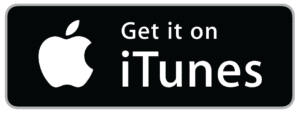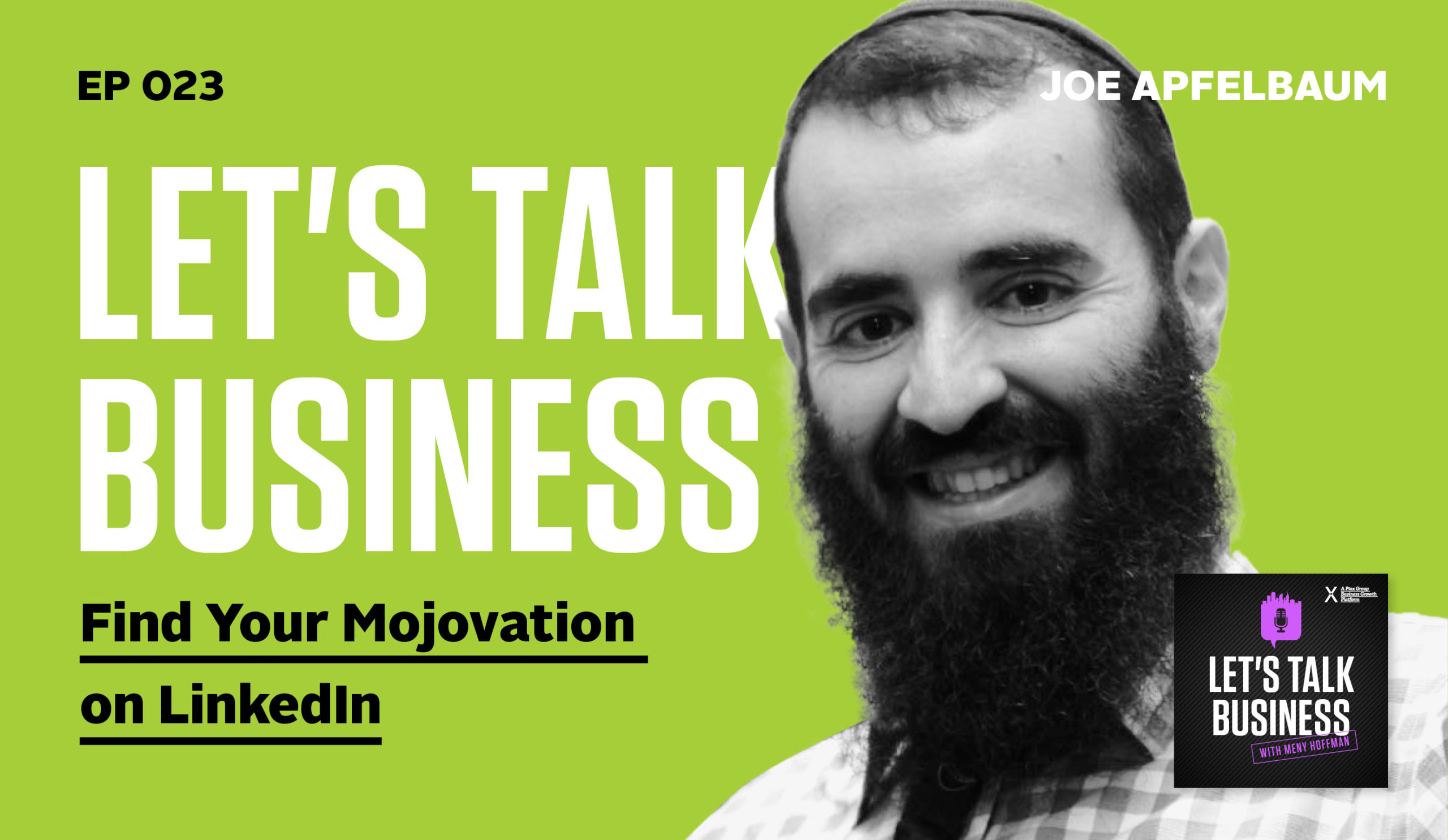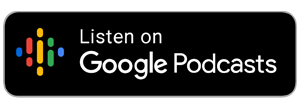Matt Johnson, the author of MicroFamous, joins Meny Hoffman to discuss how you can maximize your introverted or extroverted personality for your business.
Are you introverted or extroverted? Many people believe that being an introvert is a weakness, especially for business growth where interaction is necessary. But Matt Johnson, the author of MicroFamous, begs to disagree. Matt believes that both introverted and extroverted personalities have their own strengths and weaknesses. To grow your business, you must identify where you get your energy and what your strengths are. Listen more about what Matt has to say about growing your business better as he joins Meny Hoffman in this episode.
Listen to the podcast here:
Download the audio file here.
How Introverts Build Great Businesses—With Matt Johnson
Before we speak about our guest, first of all, I want to thank you for the amazing feedback we got for the episodes that I was interviewed. I was able to share some of my story and some of my thought process on leadership culture and so much more. I want to ask you if you enjoy those episodes, please let me know, send an email to Podcasts@PTexGroup.com, so we know we could do more of those standalone episodes here and there. If you have a specific topic you want that we should discuss, send me an email as well so we could cover that. At the same time, I don’t want this show to be just a one-sided conversation, I want to learn from you. At any given time, always use the email. I will be getting those emails and I will be responding to you. Take me up on your offer. I want to see your emails and I’ll be able to respond to you directly.
Our guest is Matt Johnson. Matt is a marketing agency Founder and runs a podcast launch and production agency that helps business coaches, consultants and thought leaders use done-for-you podcasting to attract an audience and build influence. Matt is also the author of the book, MicroFamous, and hosts the MicroFamous podcast. He is a frequent podcast guest and events speaker to audience across the US, Canada and Australia. I loved our interview because we spoke about something that I don’t think we spoke before, which is introvert, extrovert. Matt is an introvert, he was his whole life, and it built his career around it. We speak about the framework of an introvert and an extrovert, and which is not a weakness. It’s rather a type of person and how you could overcome it and build a support system to give you anything that you need in order to be successful.
Pay close attention how Matt explained the concept of podcasting, how a business leader and a business in general that wants to gain more attention should focus on, and the practical advice how to launch a podcast. What is your 1st step, 2nd step, and how to make sure you focus on the right metrics? At the same time, pay close attention too on how Matt and I discuss social media and how to overcome the loudness of social media and how you could be effective in getting your message out. It’s not about quantity, it’s about quality. Without further ado, here is my interview.
—
Matt, thank you so much for joining me on the show.
Thanks, Meny. I’m excited to be here.
All my guests are excited to be here, otherwise they wouldn’t be invited. Let’s start off a little bit of a background. There’s a lot to talk about and some of it we talk about before we start where I want to get into and I know the audience will gobble up information. Give us a little bit of background about what your past is, what you do professionally and how you got into it. We’ll put things in context.
I bounced around a lot, so I’ll start with what I do now. I run an agency that launches and produces podcasts, work with a lot of business experts, speaker, author types, and get to work with some awesome people with amazing life-changing content. That’s a lot of fun. I’m also an introvert. I have worked remotely since 2015. All my team is scattered across the world, which is fantastic. I get to work with some amazing talent, and more importantly, I built the business to the point where I run the agency, the operations of it in about four hours a week. It’s a great lifestyle business. Like I said I did bounce around a lot. I’m the least likely entrepreneur to ever walk the face of the Earth. I grew up a homeschooled pastor’s kid introvert who loved to read and spend all my time in the basement practicing for musical instruments.
When I got into the working world, I had a whole bunch of stuff to overcome. I never expected to be an entrepreneur. Way back in the day, I had the good sense to start a real estate team in 2007. I also had the good sense to shut it down later in 2007. I like two things about the real estate team and that area, which was the marketing and the team building, which is leadership. I didn’t realize at the time that I was drawn to those two things. I went and I chased the dream as a musician for few years, and then I got into marketing again. I started doing marketing for a piano studio. It was funny because it led me back to jumping into working for an agency. Even several years ago, I was some dude working at somebody else’s agency. I got a chance to move into business development. I moved out to San Diego and I got the chance to start hosting webinars with some of the key people in the real estate space like coaches, speakers and trainers.
[bctt tweet=”Build a system around you that forces you to be disciplined.” via=”no”]
One of them called me up one day and pitched me on the idea of starting a podcast. That became Real Estate Uncensored, which now has 1.5 million downloads and still gets named to all the top list in the space. It was an interesting bouncing around journey that led me into the world of both podcasting and real estate. I ended up being the guy in the team building space in real estate that launched all the key podcasts in that space. From there, I branched out into mortgage and financial services, mostly through referrals and started to make a name, but where I got initially MicroFamous was as this podcast marketing guy in the residential real estate space. That’s been the bullet points of my journey.
You’ve shared enough, so there’s a lot to dive into. I’m going to get to the podcast, the conversation, it’s important for our readers, business owners are looking for getting exposure to their personality, to the brand, to everything else that they have to offer for the world. You touched on something, which on the surface level, it sounds contradicting. To our readers, I want to clarify that, and ultimately, maybe there’s a lesson to be learnt over there, which is podcast is one extreme of being out there and speaking publicly. Here you’re saying you’re an introvert playing in your basement for years. I want to dive in, but I want to even dissect that a little more, and this is something that in general business and our way let’s speak to general about business and personalities is there’s one thing that probably my readers have known gazillion time on the show speaking to different authors.
I remember I spoke about this topic to Gino Wickman, who is the Founder of EOS. We spoke specifically on this topic, which is a lot of people label themselves something, and therefore that almost becomes a belief system in themselves and ultimately almost that’s the roadblock to anywhere they want to go. Sometimes it’s for the good, for the bad or for the ugly. Before we get to introverts and extroverts, even on entrepreneurship, a lot of people will do reckless decision-making or reckless behavior and they’ll say, “This is entrepreneur. We have to dream big, and we have to get into stuff.” It’s reckless. You can use entrepreneurship as an excuse. You can use entrepreneurship to help you guide you where you want to go and what you want to do, where’s your passion, and then ultimately make decisions wisely.
You could dream, but you have to bring it into reality. I want to touch what you had discussed, which is the introvert. This is something I can’t count how many times I’ve sat with people that are introverts. They said, “Maybe I’m not successful in sales because I’m an introvert. Somebody told me I have to be an extrovert because I have to be this outgoing person. I have to steal the show and I have to be on stage and I’m an introvert.” The data doesn’t show that. Even without data, my response always, “You know why 50% of introverts are successful and 50% of extroverts are successful? Your potential clients are also 50% introverts and 50% extroverts.” You find your balance and you connect to people that want to connect to you because they have something in common. I want to learn it from you. How do you explain introvert and extrovert and how did that play a role in your life and what could our readers learn from that?
You talk about be careful what you identify with, that’s 100% true. As you were talking, I was thinking about, “Do identify as an introvert? Is that a good thing or a bad thing?” I think it’s a good thing because introvert to me is not a weakness, it’s a different set of strengths. I identify with the strengths. I don’t identify with the weaknesses. You never want to identify and wrap your weaknesses up into your identity as if you’re never, ever going to work on your weaknesses. I don’t think being an introvert as a weakness. There’s a book that came out in the ‘60s that laid this out, introvert is about where your energy comes from and what draws down your energy.
For an extrovert, they get energy by being social. Introverts get energy by being alone and when we go out to be social, we can enjoy it all we want, but it still draws down the energy and then we have to go replenish. One of the best things to ask yourself is if you go on a long drive, do you reach for the phone to call somebody or do you put on some music and get lost in your thoughts? The first thing I do on a long drive is I pop in the music and I get lost in my thoughts. That’s all I want to do. I can go on an eight-hour road trip and not talk to a single soul and it’s the best day ever. If that’s you, that doesn’t mean that it’s going to be a hindrance in sales. You do have to build some systems around you to make up for the fact that you are naturally going to be probably less social than the social butterfly.
Sales can feel like it comes easy to extroverts because they talk to more people and they get energy from it, but there’s ways around that. Sales is way more about talking to the right people anyway, so if you talk to fewer people, but they’re the right people, you’re going to blow every extrovert out of the water when it comes to sales. That’s why I don’t look at being an introvert as being a weakness, even though extroverts, if you ask them, they will. You got to be careful who you talk to about what’s a strength and a weakness, because for them, they look at introverts like we’re not extroverted enough. I’m like, “No, you’re insane. You get your energy from a different place. That doesn’t mean you have a strength and I have a weakness.”
For our readers, regardless of who you are, either extrovert or introvert. You might have a little bit more of one of the other, but you are one side or the other. What you said is so brilliantly true. It’s not a weakness, it’s the type of person you are. Nobody has every type of skill, and therefore you are working with what you have and what you got, and then you’re creating systems or support systems around it to help you with the rest. I’m going back on the sales part. I’ve read a book, which is based on value-based selling. There’s data out there that sometimes introverts sell 2:1 when it comes to value-based sales, why? They’re not outgoing, but if they connect to the right person, they develop that relationship that can almost be broken and they could express the value that they’re bringing to the table way deeper than shallow with the extrovert coming in, “Buy from us. We’re the best. We’re the cheapest.” It has the pros and cons, but ultimately, it’s not a weakness. It’s just a matter of what support system do you need to build around it based on your current position. Some of introverts might be genius, people sitting and coding with headphones all day long, and they’re brilliant, amazing, and they love every minute of their life. It’s not a weakness even if I have to build a support system only when it’s needed for what you need to do.
I remember one of my clients who I would consider to be super disciplined. A cold calling master, consummate salesman, also an introvert by the way, which I was surprised to find out, but he said something interesting to me, “I’m not disciplined. When I work out every day, but not because I’m the most disciplined person, it’s because I have somebody meet me at the gym, it’s an appointment. I built a system around me that forces me to be disciplined because I don’t want to work out. I would rather keep working at the office, but I knew I needed to work out, so I always have a workout buddy, I always have a schedule. We always have a time to meet. I have someone that holds me accountable to be there.” It was a good example of, it wasn’t that he changed who he was, he didn’t become more disciplined. He built a system around him that got him what he wanted without having to change who he was at all.

He has this perception of being a disciplined person because he does work out and he runs triathlons and he climbed Mount Kilimanjaro, but all it is, is he set up a simple system around him to make sure he showed up to the gym. Anybody of us can do that same thing. It doesn’t matter whether you own a company you’re working for a company, whatever your goals are. Be careful who you listen to because people will try to tell you, you can’t achieve those things unless you change X, Y and Z about yourself. Lean into the strengths, downplay the weaknesses, put yourself in a position where you can leverage your strengths and you can still build a system around you that makes up for the things that you think of as weaknesses, and you can still get and achieve all of your goals. It’s a matter of finding that right support system.
I want to speak about what’s happening around us on a daily basis, which is on social media. What I’m seeing out there, and I know that you have some thoughts about it, think about several years ago. You had your story, you shared your story and most mostly was shared with the surroundings, people around you, they knew the genuine you, and ultimately, they knew who you are, and they were able to connect. We live in a social world where there’s a lot of hype fakeness, buzz and loudness online. What have you taken about social media in general? Introverts and extroverts, do both of them have the same fair share on being able to share their messaging or whatever they bring to the world?
At one point we did, and it’s moved away from that to the point where now it’s getting massively tilted in favor of the extroverts, Clubhouse is a good example. Every person I know who’s excited about Clubhouse is an extrovert. I see all the same posts that you probably do, “I’m getting insane engagement. If have a podcast and you’re not on Clubhouse, you’re missing the boat.” I see all this stuff. I got an invitation early on, so I jumped on and I got some firsthand experience. I know what’s going on. I know what’s up. It’s real-time content and engagement, Clubhouse is the latest and maybe the most extreme example we’ve seen so far, because you got to show up and be there. It’s like being in a networking room you’re there virtually and people are talking and interacting. That’s all great, but the people that it works for are going to be the people that are extroverts and good at sales and good at networking. If you’re not great at walking into a physical networking event, if that sounds exhausting to you like it does to me, you’re probably not going to be great necessarily on Clubhouse either.
Even if you are good, are you going to spend 2 or 3 hours a day on Clubhouse to grow your business when you’ve got a business to run or a career to grow outside of that? That doesn’t leave a lot of time for doing the work. Even if it does bring in clients it’s like, “Compared to what?” Back in the day, there’s a good example. If you remember Grant Cardone’s book, The 10X Rule that came out, he talks about how he would schedule tweets to go out every seventeen minutes. Once upon a time, if you were an introvert, it was great, you can schedule your content out for a month, and you could be on Twitter like you could feel omnipresent without being present. That doesn’t exist now. Posts that are scheduled out a couple of weeks ago are getting so slammed by the algorithm now. It’s not even funny. If you’re not getting comments within the first ten minutes of your post being out, you might as well drop it into a bucket.
I see all this stuff going on. Social media is tilting away from being a level playing field, to being an uneven playing field that favors the people that enjoy being social, like it or not. I’m an extroverted introvert. I can turn it on when I need to. I can go speak in front of 1,000 people. I can go to a networking event if I need to and I can get by, but it’s exhausting. I don’t want to base the success and the growth of my entire business on doing something every day that exhausts me. If you talk to any introvert, they will tell you the same thing. We’re about to see a lot of stuff that works, but it’s like, “Works for whom and compared to what?”
What do you suggest? What is the option for the introvert when it comes to marketing, when it comes to trying to compete on eyeballs?
At least for me right now is fortunate to get into this world of podcasting, because that is a space where people are looking for solutions to problems that they have, whether that’s business, personal, they’re there for a reason. People are listening to Joe Rogan to be entertained, but when they show up to a niche business podcast, they’re not showing up because you crack a couple of jokes or have good banter, they’re showing up because they have a problem in their life and they’re looking for an answer. They’re spending 30, 40, 60 minutes listening to content for that answer. There’s no other form of marketing except may be webinars and you have to pay to get people into those. There’s no other form of marketing where people spend that much time with content.
If they see your Facebook posts breezing past them, they might stop, read it and take a glance at something, they’ll spend five seconds with you, ten if you’re lucky. People are spending 30, 40 minutes listening to podcasts. The fortunate thing is that right now, there’s a whole ecosystem out there where it’s still a level playing field. Extroverts are good at hosting podcasts because they’re fun, energetic, and they project their personality, and all those things are still true, but podcasting is still based around raw, authentic conversations, and introverts are good at that.
To be a guest on other people’s podcasts, you’re suggesting to host their own podcasts. What do you see?
[bctt tweet=”Don’t base your entire business’ success and growth on doing something every day that exhausts you.” via=”no”]
All of the above in phases. If you’re a small business owner and you’re on the outside looking in, maybe you’ve listened to some podcasts but you’re not a super consumer and you’re eyeing it, wondering if it’s right for you, the best step is to go out there and reach out to podcast hosts that are in your network already and say, “I’ve got an interesting story to tell about my experience and my journey. Would you be interested in having me on your show?” Go out there and get interviewed a few times and see if you like it and enjoy it and I bet you will. You can start to scale that up and be more intentional about who you reach out to maybe hire someone in your team to start pitching podcasts directly on a consistent basis.
That’s a great idea and a great place to start. From there you can decide, “Now that I’ve been on some podcasts and I have some familiarity, I know what I like and what I don’t like, I could see what kind of host I could be.” You can then look at launching your own. That’s where you take it to the next level and build an authority platform for yourself, a place where it’s about your message, your content, and you’re nurturing people to your belief system. After a couple of months of listening to your show, they’re moved closer to hiring you, hiring your business, working with you, hiring you if you’re an executive or a thought leader, an author, any of those things. It’s best to do it in stages. Go get featured as a guest first, then look at launching your own.
When it comes to launching a podcast, I know that a lot of people get stuck on, “What do I want to get out of it? What is the structure of it and how am I going to make money? How am I going to market it?” What would you say is the biggest myth of podcasting and people that, before they start, they’re looking at the wrong things, the right things or what should they focus on?
I did a podcast episode about podcast launching, what matters and what doesn’t. I’ll give you a sneak peek. The number one thing that matters when launching a podcast is figuring out who your target audience is and not thinking about it in terms of millions of people, or even 100,000 people. Think about it in terms of 10,000 people. I’ve got a client that his target market, the entire pool of people who could hire him on any given year is about 15,000 people. His podcast gets 10,000 downloads a month. As you can imagine, he’s doing well in his target space, partially because he didn’t go too big too soon. That’s a big mistake that people make when they get into any kind of online marketing is, they go way too broad. That leads them to a message that’s too bland, too boring, too conventional. It doesn’t get any attention. It doesn’t get anybody who’s heads turning it. It doesn’t polarize. It doesn’t arise in the emotion.
Think deeply about who your most important people are. If that’s the type of client that you take on, if that’s the type of business that you want to serve, if that’s the type of company you want to get hired at whatever it is, think about who’s the most important person that you can have listening and focus obsessively on creating something that they will flip out over and love. A lot of the other stuff that people get hung up on, sound quality being one of them, ends up not being such a huge issue as you think. “I’m doing this on a $100 microphone. The reason I chose this microphone is because it sounds the same. I am not in a pristine studio environment. I could take this microphone to my car and record it and it would sound exactly the same because it’s not meant to be in a studio.” There’s a lot of stuff that people get hung up on like tech and getting the best equipment and the best gear. Most of that stuff doesn’t matter. The content and the audience are way more important.
I remember when I started off, I said, “I’m not even buying a piece of equipment. I’ll use my headset that I use for my Zoom calls. When I’m at episode ten, I’m going to buy equipment.” I got to episode ten. I started asking a bunch of friends that have podcasts, which gears to buy. They said, “You could have the whole set for $100 something. That’s what I have. We’re at 80-something episodes later, and I’m still at $100 equipment and it’s doing fine. I saw somebody posted that they’re starting to podcast and a studio, and they were saying that close to a year, they worked on setting up the right setup. It’s good, depending on what they want to do, if they want to do a visual, if they want to do video, but ultimately, don’t let perfection get in the way of progress. That’s the best thing, you get feedback, you know how to improve. You could get those feedback and always improve. You can’t improve if you didn’t start.
You can get some good advice from people. I love that approach that you decided to get started, start with what you have and then iterate and improve as you go. That’s one of the best approaches to everything. Introverts might have a little bit more of a hard time with the perfectionism stuff, and that’s one thing to watch out for if you are an introvert, and especially when it comes to putting yourself out there in public, don’t get too hung up on what it looks like early on. You might look back at those first ten episodes and cringe. Most people don’t care or know. I could go back to episodes of my podcast from 2015 on the Real Estate Podcast and go, “Holy cow.” First of all, I looked like a baby and the audio quality wasn’t great. None of those things were right but nobody cared. It still worked and people liked it. We gradually improved as we went along. We changed the entire graphic look of the show a year in. We launched with what we have. Don’t get too hung up on the perfectionism that it keeps you from doing anything.
When sometimes you listen to podcasts and the podcast is all about the personality, which is the person, the host, it’s their show, especially if it’s a company that wants to host a podcast based on getting their message out. They put out a host, which is in an individual within the company, how do you balance the spokesperson being a company spokesperson versus the personality?
I deal more on the world where the person and the personality are the host, but there’s even a trap there, which to maybe do too many interviews and not give the audience a chance to hear from you directly. That’s part of the reason why I thought the interview episode, where he flipped the tables, you got interviewed on your own show it, do more of that. There should be more solo episodes.

You know how I got that? I posted on LinkedIn, asking that we’re going to be doing the next season and I’m looking for guests. All of a sudden, the cameras started coming again, “How about you are being interviewed?” I said, “Here we go. We’re going to do a couple of episodes that way.”
It’s happened to Tim Ferriss, Lewis Howes and some of the other big names in the space where the audience says, “We love your show. We want to hear from you more. Do some solo episodes.” If you’re an individual, don’t do too many interviews, we recommend about two a month and balance that out with episodes where you’re the center of attention, because ultimately, you’re trying to convert people to a belief system way of looking at the world. You never get a chance to share that because you’re only highlighting and featuring a guest, then you won’t ever convert people to your belief system. You’re just featuring a whole bunch of different types of beliefs on your show.
If you’re the individual and you have that control, then mix in some of those solo episodes or flip the tables and get interviewed like you did. When it comes to being a company, you can do interview episodes primarily because it’s more about the company being viewed as a thought leader and a facilitator of thought leadership in the space. If you’re running an agency, if you’re running a business that serves a particular industry, it’s less about like you as somebody within the business, being the star of the show. It is about putting the guests and the industry itself as the star and putting that in the spotlight and providing a place for thought leadership without you having to put all the focus on yourself. When it comes to being a company, you can rotate hosts. You can have the CEO, or the founder do all the interviews and you can do some solo episodes in there. If you want to lessen the dependence on one person, you can do a rotating cast of hosts and feature the guests and send people to a place where they can learn more about the company but give them a compelling reason to go there. Give them something compelling, whether it’s a white paper, a giveaway, or it’s video. Give them a next step where they can learn more about the company where you do have 100% control of the message and how it’s presented.
I know that you’re the author of the book, MicroFamous, so that might be part of that book. How do you get over that we live in a world that every second counts on Instagram or every other podcast, “This is an influencer, a guru, an expert,” and here’s a person trying to make a living, running their business and they want to get into that space but they don’t want to get in their own mind, like, “I’m an influencer?” How do you keep it the authentic-ness to who you are? What’s that balance?
It comes down a little bit to what you share, and understanding, especially as an introvert, it’s not about sharing your entire private life online. We’ve gone a little bit overboard on the authenticity stuff. Nobody needs to see you when you woke up in the morning and you haven’t had your coffee yet, that’s not being authentic. That’s sharing parts of your life that nobody cares about, and you don’t need to share. For an introvert, freeing yourself from the idea that to be an influencer means you’ve got to share and document your entire daily life and present this facade of being a business rock star. I don’t think that works for introverts anyway. When you free yourself from that and you go, “Do I need this huge audience to keep on growing my business or grow my career?” I would argue, no.
I do a lot of work in the coaching and consulting space where there’s a direct link between clients coming in and income so you can see quickly if something works, which is nice. I know multiple people in that same space that run 6 and 7 figure businesses in spaces where there are no more than 15,000 clients in any given year. The idea of having 100,000 followers on Instagram, that that’s what you need in order to get the next level, that’s a belief that needs to be smashed. You don’t need that many people. If you don’t need that many people, that means you can also get clear and compelling with your message. That’s something that I go into some depth in the book because that’s the key to introverts cutting through the noise online is you don’t cut through the noise the way GaryVee does with volume, both loudness and amount. That’s GaryVee’s strategy is pure volume. Introverts have to cut through with a clear and compelling idea.
It’s quality versus quantity.
If you cut through with an idea, that changes everything.
There’s the fear, “I’m going to launch my podcast. I’m going to have 15, 30, 100 listeners, and how can I even compete with what’s out there?” The answer is you don’t even have to compete, you just have to bring value to your audience and the people that you want to be associated with. It’s almost like a friendship. I don’t know exactly the data, but regardless how many contacts you have, there’s a limit of how many people you could be close with. I remember the number it was close to twenty. If you look on average or you look at a person, that’s going to be a mix of social friends, family members or coworkers, but ultimately even if you have different parts of your life, you’ll see how that changes.
[bctt tweet=”Lean into your strengths and downplay your weaknesses. Put yourself in a position where you can leverage your strengths.” via=”no”]
You have different people in your life, that twenty, changes, but never is more than that. Maybe if you have a wedding or something, you’re going to have more people show up, but close friends, it’s limited that we could have that lengthier conversation. What are the steps, if somebody is reading to and they’re saying, “I’ve been speculating about it, I want to get my message out, we have a great service, we have a lot of expertise in what we do,” what would be the few steps that they need to prepare before they could dive in?
In terms of steps to prepare to launch a podcast for themselves, besides going out and getting interviewed on the podcast is to put that toe in the water. Let’s assume you’ve already done that and you’re looking at launching it. The next thing is to start having conversations that recorded on Zoom behind the scenes with people that are already in your network and test that show format that you think that you’d like to do and start having some of those conversations and see how they go. That’s a great next step. Before you decide to launch, you can go with the service, you can do it internally, you can do some hybrid, or you’re going to hire someone to help with certain aspects so you can get someone to take care of the actual mechanics so that’s all you do is record the episodes. That’s the easiest way to launch a podcast because it is complex to launch.
That’s probably the best place to start. Start having those conversations on Zoom, start testing out the idea and get comfortable and see if you have the capacity. “Does it give you energy back? Do you enjoy the conversations? Are they energizing for you?” Send them out to a portion of your audience and see what kind of feedback you get. “Is this valuable? Are people interested in the topics?” One of the most successful podcasts we ever launched, we launched it in 2016, but we laid the groundwork by doing a series of live Google Hangouts for about nine months prior. We were testing the idea and sure enough, like the name of the podcast was not the name of the Google Hangout series that we’re doing. We changed it in partially response to feedback. More importantly, it got us comfortable with the concept, the idea, and allowed us to zero in on the topics.
To give you an idea of how specific we would get, that was a podcast in the real estate space, but we were talking about how to take your online lead conversion for leads you’re paying for online from 1% to 3%. Ninety-five percent of the industry didn’t care about that topic, but the listeners that we were going after cared a lot about that topic because they were spending $10,000 a month on paid ads and watching those leads go out the bottom of the bucket without being converted. We were able to take some time and start having those conversations with the audience and zeroing in on the topics that they cared the most about so that when we did launch the podcast, it was immediately successful. There are some things you can do behind the scenes, laying the groundwork, getting comfortable with the format, start talking to your audience about the topics they care intensely about because that will do way more to ensure that you have a successful launch than you are building a studio or making sure that you have the right microphone.
What would be best practices for once you launched to get the word out? Sometimes even ourselves, we feel that we get so much great feedback. My response to that is tell more people about it, share it, feel free. It doesn’t cost money. What are the strategies that you could do to accelerate the listenership once you started doing the podcast and you have the content out there?
Assuming you’ve got the audience involved in the decision-making process and you were asking them along the way, “What graphics should I do? What kind of guests should I have? What should my tagline be?” Getting them involved, then you launch. That gives you the best foundation to launch. One of the most important things I’ve ever told a client to do, and it works whenever they do it, is to sit down and make a list of who are the 25 most influential people you know in your space. Reach out to them and secure their agreement in advance to share the show when it launches. That’s one of the most practical things you can do. Rather than looking at social media as a bull horn that you have to be the one yelling through, look at it as a mechanism for other people to share you and talk about you as opposed to you talking about yourself. If you can start reaching out, having conversations with people in advance of you launching it in the first couple of weeks and asking them to share, that’s way more valuable than you posting more about it on your Facebook page where odds are it’s the same 100 people that are going to see that post.
I’m going to want to share with the audience, probably people thinking that you mentioned the first step would be to be a guest on other people’s podcasts. I want to throw it out there and probably you have your own stories on that, which is a lot of people say, “How should I pitch to be on the show?” I get a lot of those pitches. My team gets them on a weekly basis from all kinds of either individuals, businesses, or agencies, they’re trying to get some of those bookings. If I don’t see something connecting with my podcast, with my audience, either that person’s reading the blog or they could reference some of the episodes we had and why they are connected to, or even the content that where they could share versus saying, “I could speak about my company and I could share why we’re the best in the industry.” You’ve got to make it appealing. You’ve got to have a compelling message. If you have tried being on a show and it didn’t work for you, chances are, it was because the way it was pitched, it wasn’t compelling enough. Spend some time to identify, A) What is the message that you want to bring to the table? B) Once you reach out to a podcast host, try to connect the dots and try to say why you are the great potential guest on that particular show. That would be very helpful. Even if you get rejected, it might be a reason. You might be able to take the information and improve it for future.
That’s what I tell people to start with folks in their world, in their network first, because relationship trumps all. I’ve set people up with podcast hosts that are booked months in advance. When I tell them, “I’ve got somebody you need to interview.” They go, “Let me take a look at it.” Relationship trumps all. If you don’t have a relationship with the host, the next best thing is to do your homework and show that you care about their audience and pitch them in a way that shows that you’ve done your homework and that you feel like you can bring value because it fits with the point of view of the show and it fits with the mission of what the show is trying to accomplish in the world. If you skip the homework part and you blast out a bunch of pitch emails, it’s not going to work, but if you do take your time and you care genuinely about whether you can help make that show better and more successful, then that will show through even if you get rejected.
Let’s close with the four rapid fire questions. Number one, what’s a book that changed your life?

Number two, what’s a piece of advice you got that you’ll never forget?
One thing to one kind of person. That was from the agency owner I used to work for.
Number three, anything you wish you could go back and do differently?
Saying yes to too many things. I got in four different businesses and I shouldn’t have.
The final question, what’s still on your bucket list to achieve?
I want to be the guy that writes a book about every two years. The first one came out in 2020, so I have some writing to do.
Matt, thank you so much for joining us. I know your time is valuable. That is why, in the name of our readers, we’ll forever be grateful for sharing some of your time with us.
Thanks, Meny. I appreciate it.
It’s my pleasure.
Important Links:
- Podcasts@PTexGroup.com
- MicroFamous
- MicroFamous – Podcast
- Matt Johnson – LinkedIn
- Real Estate Uncensored – Podcast
- Gino Wickman
- The 10X Rule
- The Systems Mindset
- https://PursuingResults.com/
About Matt Johnson

Matt Johnson is a marketing agency founder, podcaster, and musician.
Matt runs a podcast launch & production agency based in San Diego, an international team that helps business coaches, consultants and thought leaders use done-for-you podcasting to attract an audience, build influence & become MicroFamous.
Matt is the author of MicroFamous and currently hosts the MicroFamous podcast.
He is a frequent podcast guest and event speaker to audiences around the US, Canada, and Australia.








